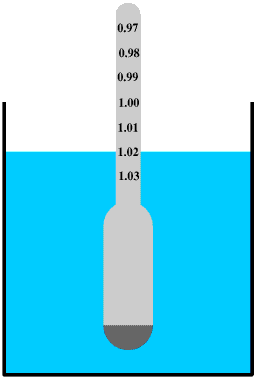Bubbles mean absolutely nothing.
Besides, it's too soon to even begin to worry....after 72 hours is when you take a gravity reading and see what's going on. It's quite common for yeast to take 2-3 days to get going, it's called lag time.
https://www.homebrewtalk.com/f39/fermentation-can-take-24-72-hrs-show-visible-signs-43635/, and by visible signs we don't necessarily mean a bubbling airlock.
it means gravity reading
It IS a sticky at the top of the beginners forum for a reason, afterall.

Airlock activity is irrevelent. Just gravity points on a hydrometer.
Airlock bubbling (or lack) and fermentation
are not the same thing. You have to separate that from your mindset. Airlock bubbling can be a
sign of fermentation, but not a good one,
because the airlock will often blip or not blip for various other reasons...so it is a tenuous connection at best.
If your airlock was bubbling and stopped---It doesn't mean fermentation has stopped.
If you airlock isn't bubbling, it doesn't mean your fermentation hasn't started....
If your airlock starts bubbling, it really doesn't matter.
If your airlock NEVER bubbles, it doesn't mean anything is wrong or right.
Your airlock is not a fermentation gauge, it is a VALVE to release excess co2. If it bubbles it is because it needs to, if it doesn't, it just means it doesn't need too...
Your HYDROMETER is the only BEST indicator of fermentation activity. Nothing else is accurate or consistent...
Unless you take a gravity reading you don't know what's really going on, not by airlock bubbling or by krausen formation. Neither of those signs are effective, they don't tell you exactly where on the fermentation process you are.
The amount of krausen can vary for whatever reason, it can come quick and depart quickly or it can linger long after fermentation is complete, and it all be normal.
And airlocks sometimes bubble or they don't. And airlock is a valve, a vent to release excess co2...NOT a fermentation gauge. It's important to make that distinction, or you'll be panicking everytime a an airlock doesn't bubble, or stops bubbling.
Fermentation is not always "dynamic," just because you don't SEE anything happening, doesn't mean that any-thing's wrong,, and also doesn't mean that the yeast are still not working diligently away, doing what they've been doing for over 4,000 years.
That's why you need to take a gravity reading to know how your fermentation is going, NOT go by airlocks, or size of krausen, or a calendar, the horoscope or the phases of the moon (those things in my mind are equally accurate).

The most important tool you can use is a hydrometer. It's the only way you will truly know when your beer is ready...airlock bubbles and other things are faulty.
The only way to truly know what is going on in your fermenter is with
your hydrometer. Like I said here in my blog, which I encourage you to read,
Think evaluation before action you sure as HELL wouldn't want a doctor to start cutting on you unless he used the proper diagnostic instuments like x-rays first, right? You wouldn't want him to just take a look in your eyes briefly and say "I'm cutting into your chest first thing in the morning." You would want them to use the right
diagnostic tools before the slice and dice, right? You'd cry malpractice, I would hope, if they didn't say they were sending you for an MRI and other things before going in....
Fast fermentations/slow fermentations/big krausens/small krausens/bubbles starting and stopping, in the long run is really irrevelent....just that you have fermentation. Yeast don't normal normally die/stop fermenting/get tired, that's a premise new brewers believe, but it's not the truth. Yeast have been doing this for 4,000 years, and know how to ferment the beer, they WANT to ferment the beer, it's their entire purpose in life is to eat sugar, peer alcohol and fart co2 (along with some major screwing during the reproductive phase) especially modern 21st century yeast.
All those other things are really just superficial to the purpose at hand, if your yeast took off, unless you let the temp go down near 50,
your yeast is still working happily away, despite what the supreficial signs like airlock may indicate.
Take a gravity reading after 72 hours, and see what the beer's doing.
More than likely the only thing that is wrong with the yeast, is that the brewer using it is impatient.






